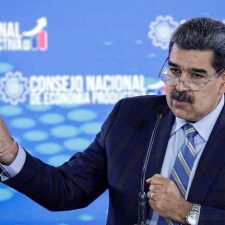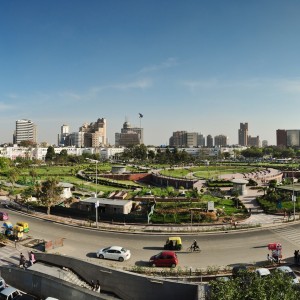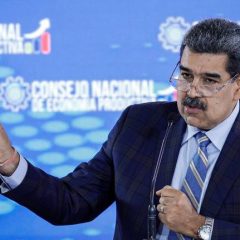Eager to divert attention from a world-record inflation rate, massive food shortages, and other self-inflicted economic problems that could lead to an opposition victory in the Dec. 6 legislative elections, Venezuelan President Nicolás Maduro is pulling a trick of last resort for embattled demagogues: reviving a dormant territorial dispute to stir nationalist passions.
It seems too crass, too obvious. But Maduro, whose popularity has plummeted to about 20 percent, seems to have concluded that resurrecting old border conflicts with neighboring Guyana and, more importantly, Colombia, will change the conversation in Venezuela away from the shortages of meat, milk, and coffee, or from the sky-high inflation rate, which according to a new Bank of America report is likely to reach 172 percent this year.
Maduro’s previous political excuses, including blaming Venezuela’s economic disaster on an alleged “economic war” by U.S.-backed oligarchs, are no longer working. After 15 years in power, during which much of Venezuela’s private sector has been decimated and corrupt pseudo-revolutionaries have become immensely rich, it’s becoming increasingly harder for Venezuela’s radical leftist regime to blame others for the country’s collapse.
Earlier this week, Maduro announced that he will call for a “civic-military union” to confront an “international maneuver from the right to provoke Venezuela with border problems.” The alleged “maneuver” was led by Exxon Mobil and Guyana, which announced a significant offshore oil find in a bid called by Guyana in disputed waters in the Caribbean, Maduro said.
To continue reading this article click The Miami Herald
Etiquetas: Andres Oppenheimer, Nicolas Maduro, Venezuela

 Share On Facebook
Share On Facebook Tweet It
Tweet It












